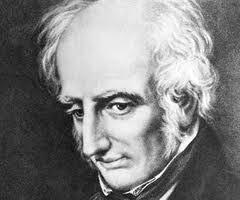The irony and depth of that thought often come to my mind as I follow the daily news about war, environmental degradation, torture, militarization of community police, the corruption of political life by money, the destructive effects of education systems and athletics, economic collapse, the scandal of professional medicine in the USA, the dishonesty of TV and other media, and a host of other serious social problems.
I follow the discussions of such massive issues relatively closely, taking them to heart, and agonize over how to make a contribution toward dealing with them, no matter how small such contribution might be. I believe it is necessary to do at least something, no matter how small, for the larger love as well as in order to keep one's own soul together, rather than just despairing or suiciding or getting depressed or going crazy or something like that.
Fairy tales can provide a surprizing amount of help in that situation.
First of all, you find that you're not alone: many people before you and beside you have been in the situation, as documented in the ancient origins and persistence and popularity of the tales. That itself is of no small help. It helps you to believe what your own eyes are telling yourself in the face of the abundant contemporary insanity around you.
The tales are also clear demonstrations that profundity is a quite different quality than cleverness, sophisticated intellectual versatility, and the accumulation of data. Some of my academic colleagues have accused me of “promoting ignorance” in saying this, but unquestioned, unguarded cleverness always results in massive stupidity and “ignorance.” In fact, a good example and definition of “ignorance” might be the “ignoring” of what I am saying here.
This reality is well-expressed in the fairy tales that speak of three brothers, two of whom are clever and the third is simple. Some examples of Grimm's tales which have this motif are “The Golden Bird,” “The Queen Bee,” “The Three Feathers,” “The Water of Life,” and “The Golden Goose.”
These tales, which have been in my mind for seventy years, typically feature three brothers who are sons of an ailing King, two brothers being clever, false, calculating, and arrogant. The third brother is typically “simple,” kind, unassuming, decent, guileless, respectful of “the animal” and the “small,” and seen as naïve and not likely to amount to anything.
So, last night I am reading before bed the justifications of torture by Richard Cheney and numerous other professionals who “know more about it than I do,” and I am thinking about the recent poll that says that over 50% of USA people think torture is all right. How is a person to face that, to deal with it inwardly, and to make at least one small contribution to resolving such an immense problem?
My book of Grimms' fairy tales is always right beside my bedside lamp, and I reach out for it and open it to the tale, "The Water of Life," which has three brothers in it whose father, the King, is ill. A wise old man declares that what the King needs is a drink of "the Water of Life." Each of the brothers goes out in turn to find it, because if he brings it home and heals the ailing father, then he will inherit the kingdom. Marrying a beautiful Princess and a few other delightful details are involved, too.
But finding the water of life is not easy. Each of the brothers encounters a dwarf, who happens to know where it is. The two older brothers are arrogant with him, dismissive, and insulting. "Stupid little fellow, what business is it of yours?" - stuff like that. The dwarf doesn't take this well, and puts a curse on the two older, arrogant brothers such that their path narrows as it goes into the mountains and they get jammed and cannot move backward or forward.
The third, guileless, son comes along, encounters the dwarf, and the dwarf asks him where he is going:
The Prince: "I am
searching for the Water of Life, because my father is dying."
The Dwarf: "Do you know where it is to be found?"
The Prince: "No."
The Dwarf: "As you have spoken pleasantly to me, and not been haughty like your false brothers, I will help you and tell you how to find the Water of Life. It flows from a fountain in the courtyard of an enchanted castle."
The Dwarf: "Do you know where it is to be found?"
The Prince: "No."
The Dwarf: "As you have spoken pleasantly to me, and not been haughty like your false brothers, I will help you and tell you how to find the Water of Life. It flows from a fountain in the courtyard of an enchanted castle."
I have seen a few interpretations of this motif that were written by highly respected academics who simply have no clue as to what is being said in the tale, and it seems obvious to me that the reason they don't understand it is that they are clever, well-informed, well-read, respected scholars and educators who accept the widespread delusion that they know things.
As for me, I feel that if I can share this fairy tale with even one person, even a child, then that is a good thing.


.jpg)










